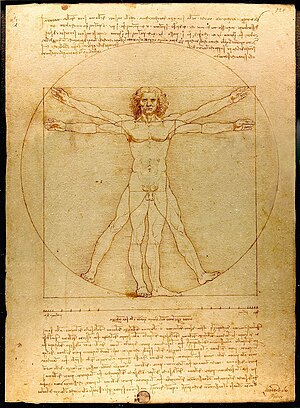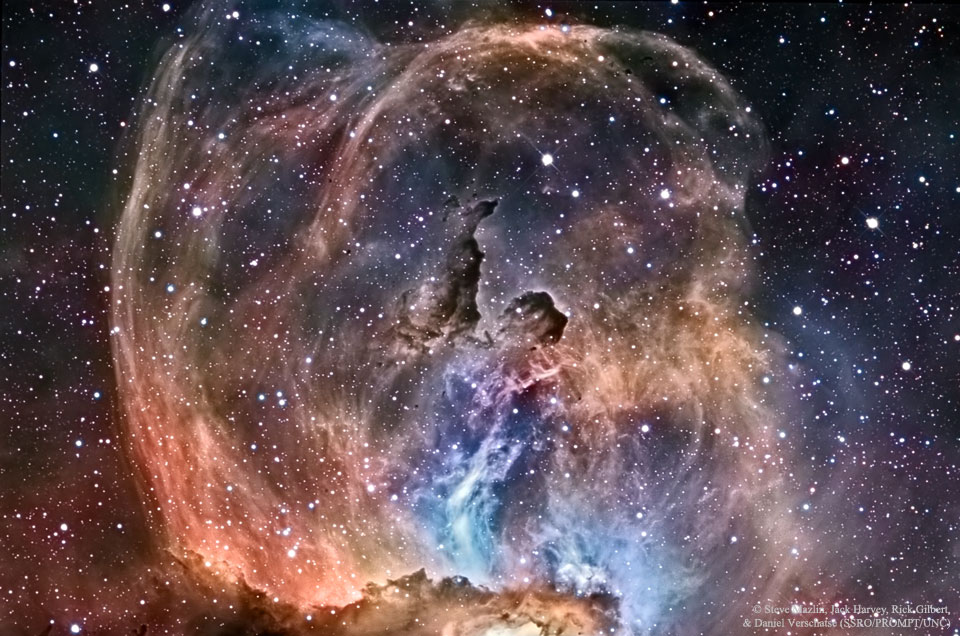
Thursday, October 13, 2016
astro picture for the day - Quote for the day / transition from magic dark ages era to the Renaissance
Image Credit & Copyright: S. Mazlin, J. Harvey, R. Gilbert, & D. Verschatse (SSRO/PROMPT/UNC)
"Science is a world view based on the notion that we can plan by understanding." - Jacob Bronowski
One of the last major additions to my "Gospel of Truth" is the evidences preserved in the old testament about magic. As one can see, the evidences suggests there was a kind of movement to eliminate the previous world of magic. Likewise, in the new testament, I find evidence in the Pauline epistles for efforts to ban the Greek sciences and philosophy. But, the religious efforts to do so clearly could not. Although, due to taking over the Roman empire, they did thrust Europe into a thousand years of dark ages. Jacob Bronowski finds in his "Magic, Science, and Civilization" evidence that the magical world couldn't be thrust away so easily as well.
In fact, Jacob Bronowski shows that the mathematical science world may have been inspired by the failures of Magic to accomplish it's goals - to control nature. Jacob quotes a Pietro Pompanazzi, who lived around 1460 to 1520, and was part of the Bologna school(if there's any readers who may have seen the James Burke "The Day the Universe Changed" episode 2 before that series . . . and the Connections series . . . was pulled down from youtube) . . .
"It is possible to justify any experience by natural causes and natural causes alone. There is no reason that could ever compel us to make any perception depend on demonic powers. There is no point in introducing supernatural agents . It is ridiculous and frivolous to abandon the evidence of natural reason and to search for things that are neither probably nor rational." - Of Incantations(here, through Jacob's "Magic, Science, and Civilization"s book
Also, in episode 3 of James Burke's "The Day the Universe Changed", James mentions the Medici as taking kind of center stage of the Italian Renaissance wealth. Jacob Bronowski notes that a Cosimo Medici( o.k. a quick wiki search suggests he was the first Medici) translated and printed out many books on "black magic" trying to find a way to learn the universe. He had a secretary, a Fecino. Copernicus was influenced to his sun-centered cosmology by a little book by Fecino - of the Sun. Then in quick succession, lots of people were publishing books on 'white' magic versus 'black' magic. A Giambattista della Parta, in 1558, published "Natural Magic." By 1620, Francis Bacon makes his famous quote, "Knowledge is Power."
Bacon's "Knowledge is Power" doesn't mean something political. He's saying mathematical/science knowledge is the way to understand nature - not magic. Magic tried to use spells and such to control . . . to gain power over nature. Jacob points out that in magic, one often tries to control nature by having power over it and rewinding it back. He points out the backward broomstick you see in some pictures of witches. And then, there's the famous biblical passage of Joshua making the sun stop and turn back.(I subtly remember a Genesis book passage about turning back the mechanism of nature; it's an idea a bit like turning wheel backwards from what it was doing before; the magicians hoped to by able to do that to nature). Around renaissance time, people were coming up with a different idea - to learn nature, one must become harmonious with it. Padua university intellectuals started thinking mathematics was the key to tapping into this harmony of the universe. Pietro also studied at Padua.
Jacob Bronowski also notes that Kepler was also influenced by magic about his idea of gravitation. He tried to understand nature by both what magical knowledge tried to accomplish things, and the way mathematics tried to accomplish things. He tried to understand the orbits of planets by means of the five platonic solids. Because they could be embedded in one another, they might be the key to the different size orbits of the planets! He of course saw the Tycho Brahe data and came to understand/appreciate a principle of science - when the data says no, discard the theory.
Kepler also had an idea of gravitation he got from magical thinkers. Kepler got his idea from a Nicholas of Cusa . . . who got his idea from a Pico Della Mirandola(who also had this idea that mankind is unique because it creates) . . . who got his ideas from a Dionysus(whom turned out to be a fake named person and stole his ideas from someone else back in 500 A.D. Christianity). The idea is that everything attacts because love permeates the universe. Everything has love(is that true? what about hate?). The quote . . .
"I transform the lover into the beloved and the beloved into the lover. The lover becomes the beloved because the lover dying, lives in the beloved. And the beloved becomes the lover for he learns to know himself in the lover and gets to love himself through the lover. And while he is thus loving himself in loving the lover he loves the lover who himself has become the beloved."
This magical passage shares a striking similarity to the vague statements that can prove anything. As I've mentioned here and there, Kurt Gödel published his "Incompleteness/Inconsistency" proofs of axiomatic systems. He basically says, a consistent finite set of axioms cannot prove an infinity of truths(consistent statements). But, an inconsistent finite set of axioms can. Above we have a magical passage that can prove anything and everything.
It also seems similar to the Bishop of Constantinople Gregorius of Nyssa quote that I've quoted many times thoughout this blog. See perhaps my Sophis/Silas post. But, I've mentioned these things recently as well.
Around Renaissance times, clearly, as indicated above, people were tired of so such unwieldy/non-constructive thoughts, and found the answer in mathematics.
- Oct 18, 2016 additional thoughts . . . magic should be viewed as an effort to learn the universe without the hard mathematics way. It's "black" magic. The mathematics of tens of thousands of years to three and four thousand years ago was not advanced enough to answer some of the simplest questions. Some questions are just not approachable; or, sometimes, there were mathematical answers, but the mathematics was too hard for many; so, many tried to come up with 'magic' supernatural solutions. Magic and religion really are efforts to circumvent the hard mathematics way, and get at nature without blood/sweat and tears. They want an easy way to understand things - not having to actually learn anything.
Subscribe to:
Posts (Atom)
